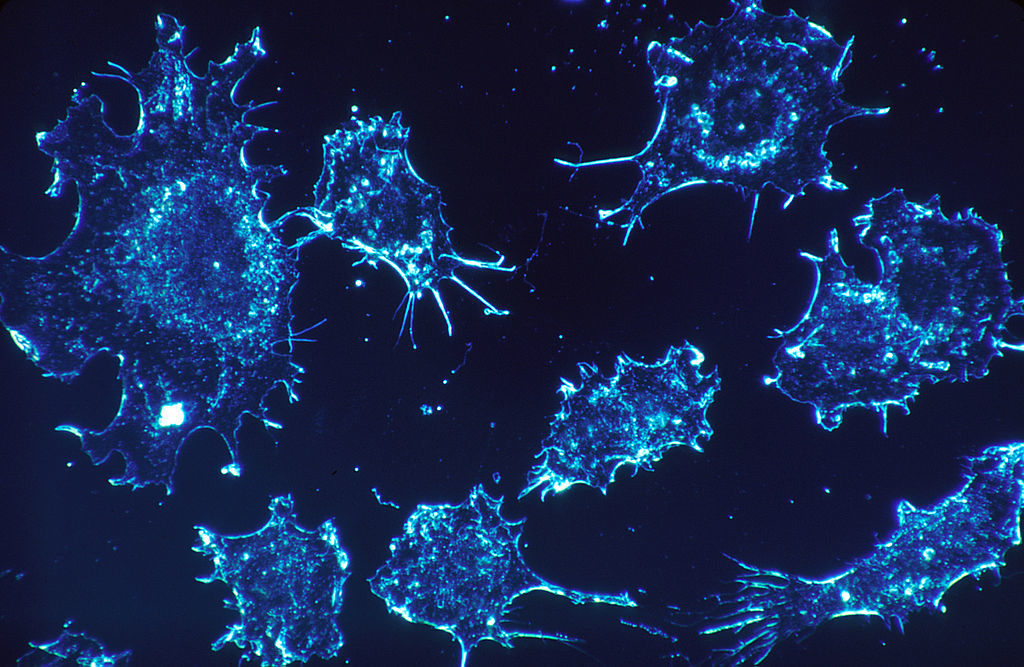Osteosarcoma is one of the most aggressive bone cancers and is primarily found in young adolescents. While it is a rare form of cancer, it is one of the most common types of pediatric bone tumors. The tumors will begin to appear in the wider ends of long bones and often manifest in the femur, tibia, and humerus.
Because it is so aggressive, osteosarcoma can become a silent killer that spreads quickly to other parts of the body like tissues, organs, and other bones. Like most cancers, osteosarcoma is typically treated with a combination of surgery to remove the tumors as well as pre-and postoperative chemotherapy. Chemotherapy is not a guarantee of recovery when it comes to osteosarcoma, though it can remove up to 70% of the tumor.
However, for patients who are dealing with tumors that have spread to other parts of the body or tumors that have recurred, the survival rate drops to 20%. A study published in March 2022 explained that with experimental immunotherapies, there is a potential to improve survival for those who are seen to be at high risk. Oncolytic viruses are a type of virus that infects and breaks down cancer cells. These viruses can be genetically engineered, or they may occur naturally. They selectively replicate in cancer cells and then kill them without harming the healthy ones.
The study, conducted at the University of Navarra, Pamplona, Spain, investigated the use of the oncolytic virus Delta-24-RGD. Based on previous experiments in a type of brain tumor called recurrent glioblastoma, 20% of the patients who received Delta-24-RGD went into remission. To make the virus more efficient at tumor-killing, a new gene was introduced into the virus to create a protein called 4-1BBL. They named this modified virus Delta-24-ACT.
When the modified virus produces 4-1BBL, it makes special immune cells, called effector T cells, last longer in the body. Effector T cells are cytotoxic, or cell-killing. Since 4-1BBl awakens these killer cells, the study authors hypothesized that an immune response would occur, leading to the killing of the cancer cells.
Scientists first tested their newly engineered virus on osteosarcoma cells growing in tissue culture. During the experiment, the cell lines did not appear to proliferate as much with the viruses present. Scientists looked for certain molecules that appear when cells are dying by using chemical tests. Based on the results of these tests, both Delta-24-RGD and Delta-24-ACT both killed the cancer cells regardless of which osteosarcoma cell line was used.
Next the researchers tested their virus in mice that had osteosarcoma cells from tissue culture injected into their bones, where an osteosarcoma would naturally occur. The mice were given two local infections to deliver the virus on days 10 and 18 and weighed up until day 40 to rule out any toxicity. The weigh-ins were used to determine severe side effects that can lead to weight loss.
The mouse studies showed that the control group (no treatment) developed visible bone tumors faster than the treatment group, and the treatment group did not experience severe side effects. The mice receiving the oncolytic treatment survived longer than mice that did not.
The scientists also observed far more immune cells in the tumors in the mice treated with Delt-24-ACT. Supporting their initial hypothesis, scientists had predicted that adding the 4-1BBL protein would promote a strong immune response. The treatment given with the Delta-24-ACT was viewed as superior to the RGD, the original oncolytic virus the researchers were improving upon. However, both still seem to be effective.
Osteosarcoma is a ravenous disease that takes the lives of many, and leaves patients with few treatment options. Oncolytic viruses represent a possible path forward for certain treatment- resistant cases, giving patients the best quality of life possible while making treatment a bit more bearable.


